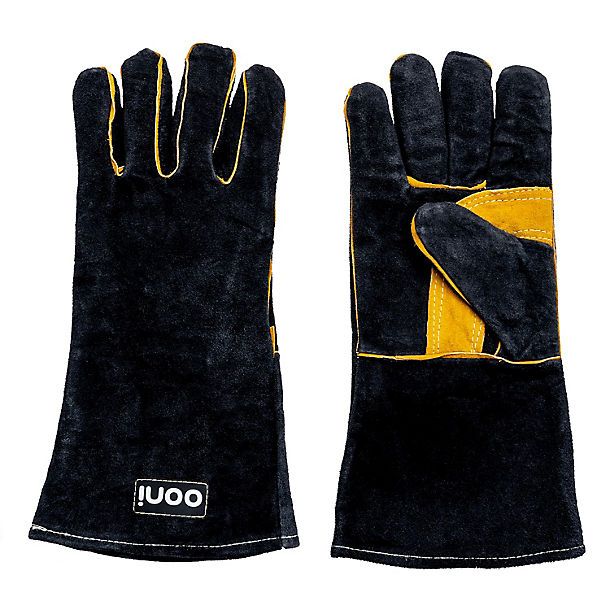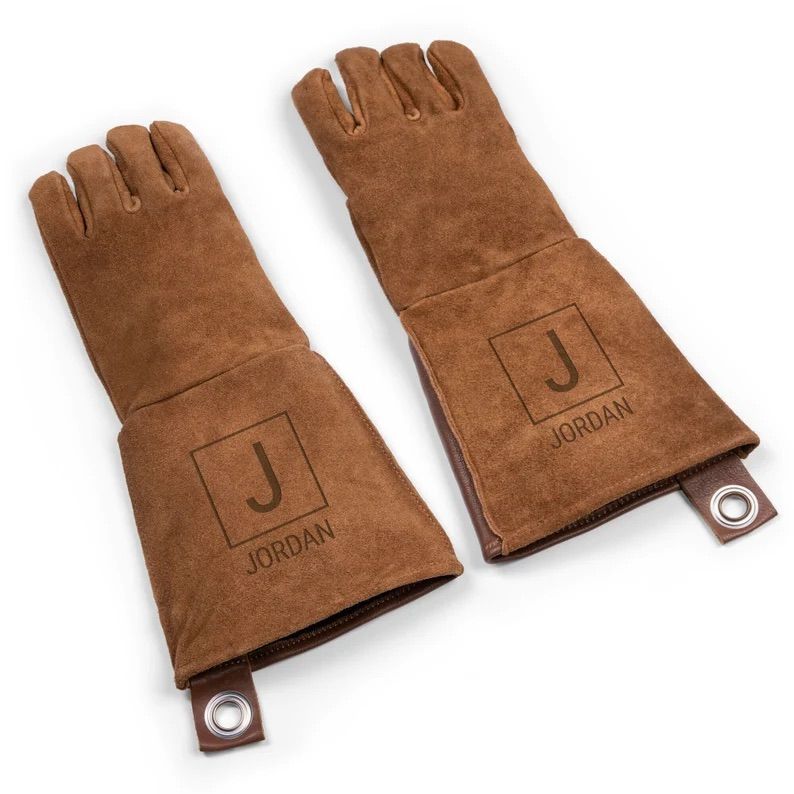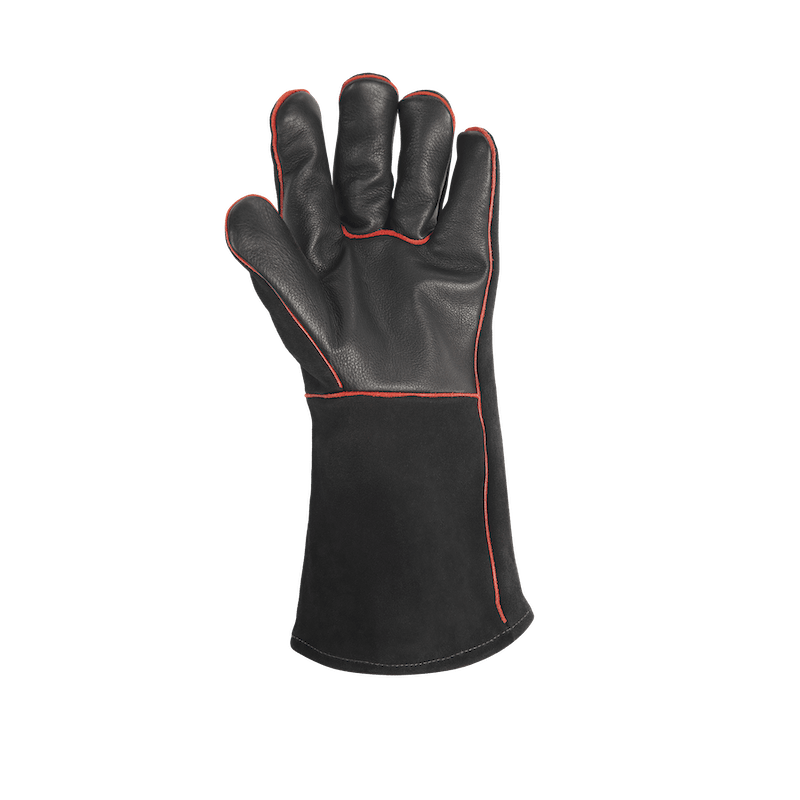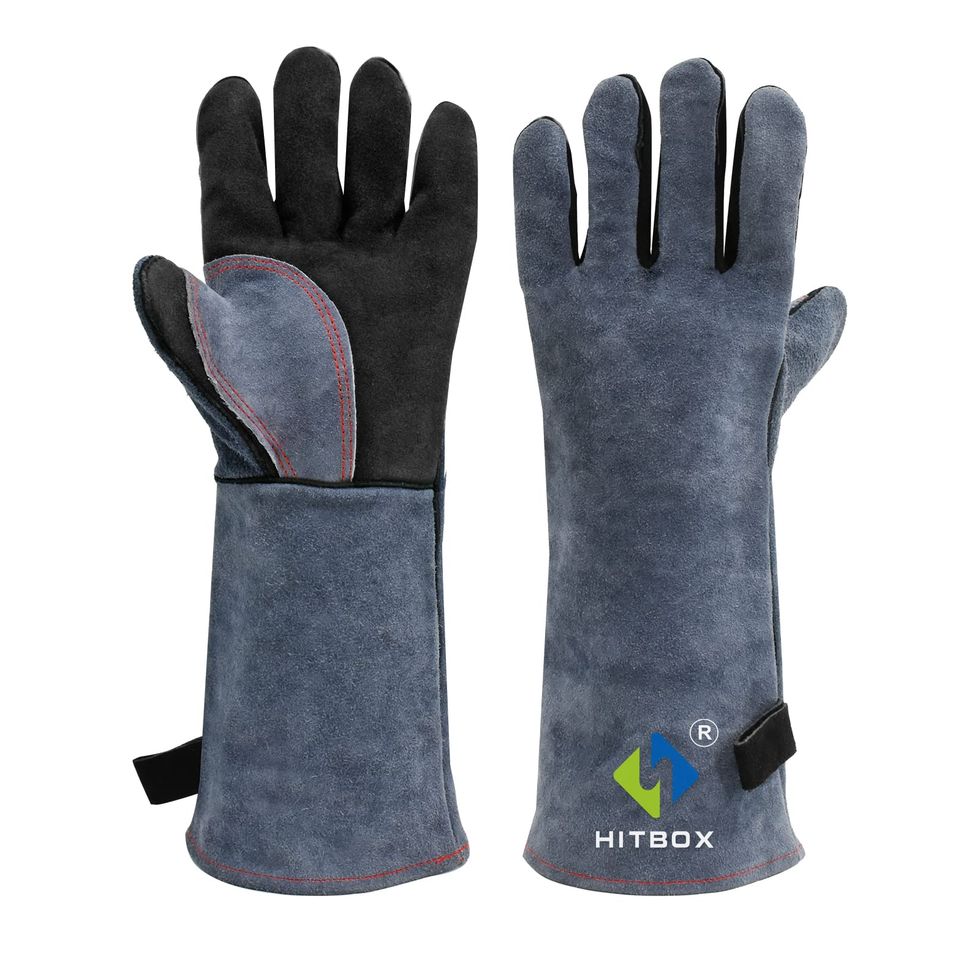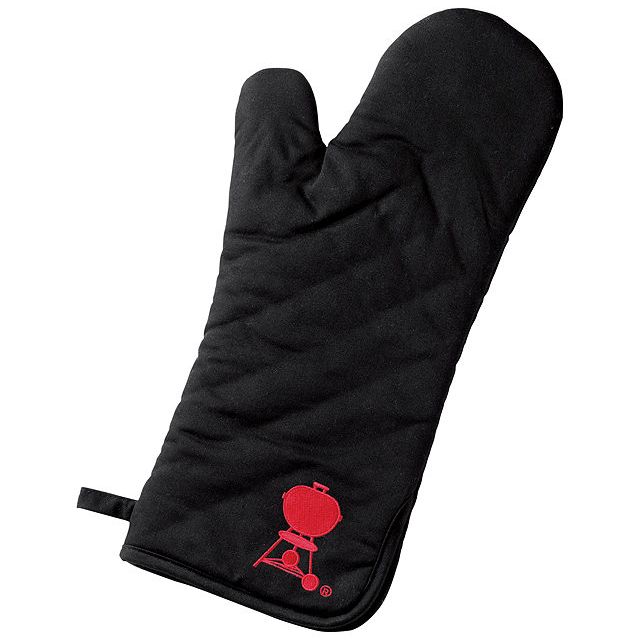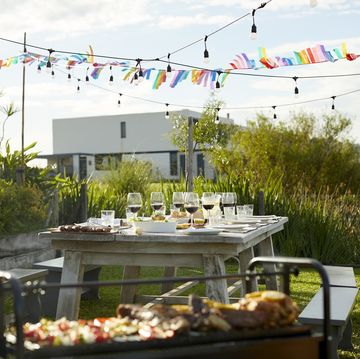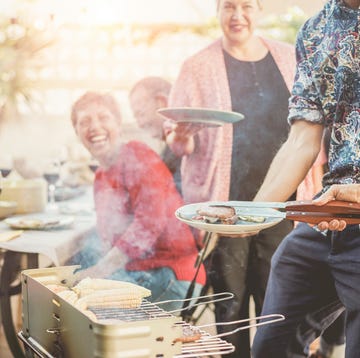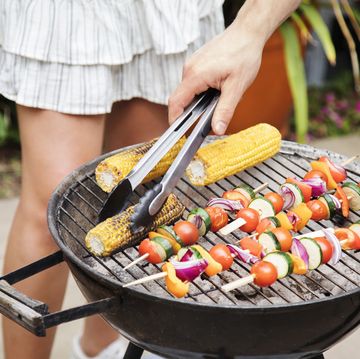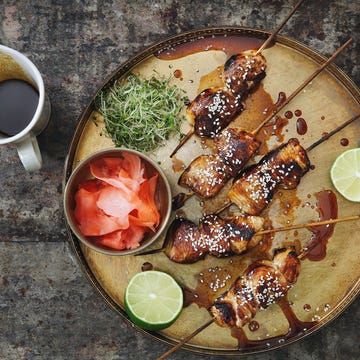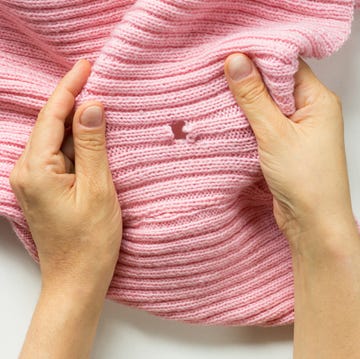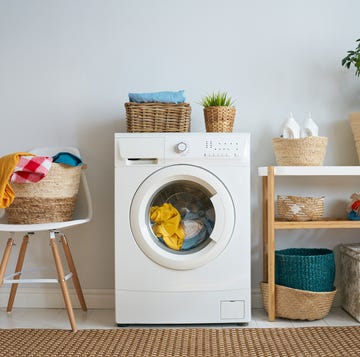Love Good Housekeeping and want more of our Triple-Tested recipes, home tips, fashion inspiration, essential consumer advice and so much more delivered to your inbox? Sign up to our FREE weekly newsletters, sit back and enjoy!
With the sun out and temperatures on the rise, many of us are flocking outdoors to enjoy a barbecue. But, before you light up the old grilling machine, it will probably need a good clean first.
Cleaning the barbecue can be an intimidating task, especially when you consider how greasy and grimy it can get. It's a must-do though as a dirty grill can contain bacteria which might lead to food poisoning. Thankfully, cleaning the barbecue doesn't have to be a massive chore. We asked the Food Standards Agency for its top tips on cleaning a barbecue.
Wash by hand
The Food Standards Authority (FSA) recommends washing your barbecue grill by hand as best practice. To do this, carefully scrape off the worst of the food residue when the grill is still hot - without touching the metal! - as this is when burnt-on food is easiest to loosen. You can buy special BBQ brushes that will help with this.
Then, once the grill has cooled enough to be handled safely, use a solution of washing-up liquid in hot water to clean it. If the remaining food and soot won't budge, you may need a dedicated barbecue cleaner, such as HG Oven, Grill and Barbecue Cleaner.
Rinse, then dry immediately to prevent the grill from rusting. Once dry, you can use a piece of kitchen towel to rub vegetable oil on the grill to further guard against rust.
Burn it off
Those in the burn-it-clean camp will be pleased to know that the FSA acknowledges that it's not practical to remove larger barbecue grills for washing, and burning off food residue over a high heat until charred will kill any bacteria that may be present.
If you have a gas barbecue, simply turn up the burners to the highest setting after you finish cooking and heat the grill for a minimum of 15 minutes.
If you have a charcoal barbecue, the best time to do this will be the next time you light the barbecue. Scrape any remaining residue (remember that it should be completely charred) from the grill, taking care not to burn yourself. Rubbing the cooking surface with half an onion can also help dislodge any stubborn bits of burnt-on food.
Side tables
For the most hygienic approach, tackling the grill is only half the story.
"Studies have shown that the built-in side tables on barbecues are hot spots for bacteria," says food safety expert Dr Lisa Ackerley. "Even if your barbecue looks clean, make sure you get these surfaces hygienically clean with an antibacterial cleaner before cooking and also always after there has been raw meat on the surface."
Cleaning kit
However you choose to clean your barbecue, make sure you have the right tools for the job. Wire cleaning brushes have suffered bad press in recent years, as there's a risk the wires can break off and stick to the next batch of food cooked on the grill. If they're accidentally eaten, they can cause real problems in your digestive system.
If you're concerned, try a scraper such as the Griddle Scraper or a crumpled piece of aluminium foil, held with long tongs if the grill is still hot. You can also buy protective mitts.
Alternatively, there are wooden scrapers available which shape themselves to fit your grill as you clean. There are also cool grill brushes you can purchase if you want to avoid cleaning the grates while still hot.



